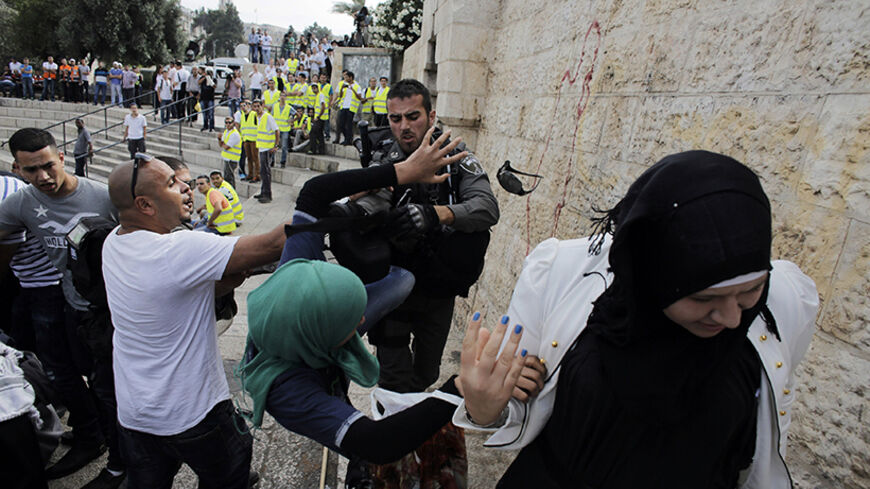On May 28, the annual flag march was held on the streets of Jerusalem on the occasion of Jerusalem Day. Tens of thousands of young Israelis affiliated with religious Zionism celebrated the political union of the city that was “liberated” 47 years ago. At the same time, several hundred power-drunk youths paraded through the alleys of the Old City, strutting their domination in front of shuttered windows, calling out racist epithets such as “Mohammed is dead,” “Death to Arabs” and “May your village burn down.”
These chants were intended for the ears of thousands of Jerusalemites for whom Jerusalem Day signals humiliation, discrimination and alienation. Most Israelis were raised on the notion that Jerusalem is “the capital of the Jewish people for eternity” and were taught that Jerusalem is “the city of King David.” According to the Israeli narrative, the Palestinian neighbors, who have lived in the city for generation upon generation, are “Arabs” who have infiltrated the land promised to the Israelites.



